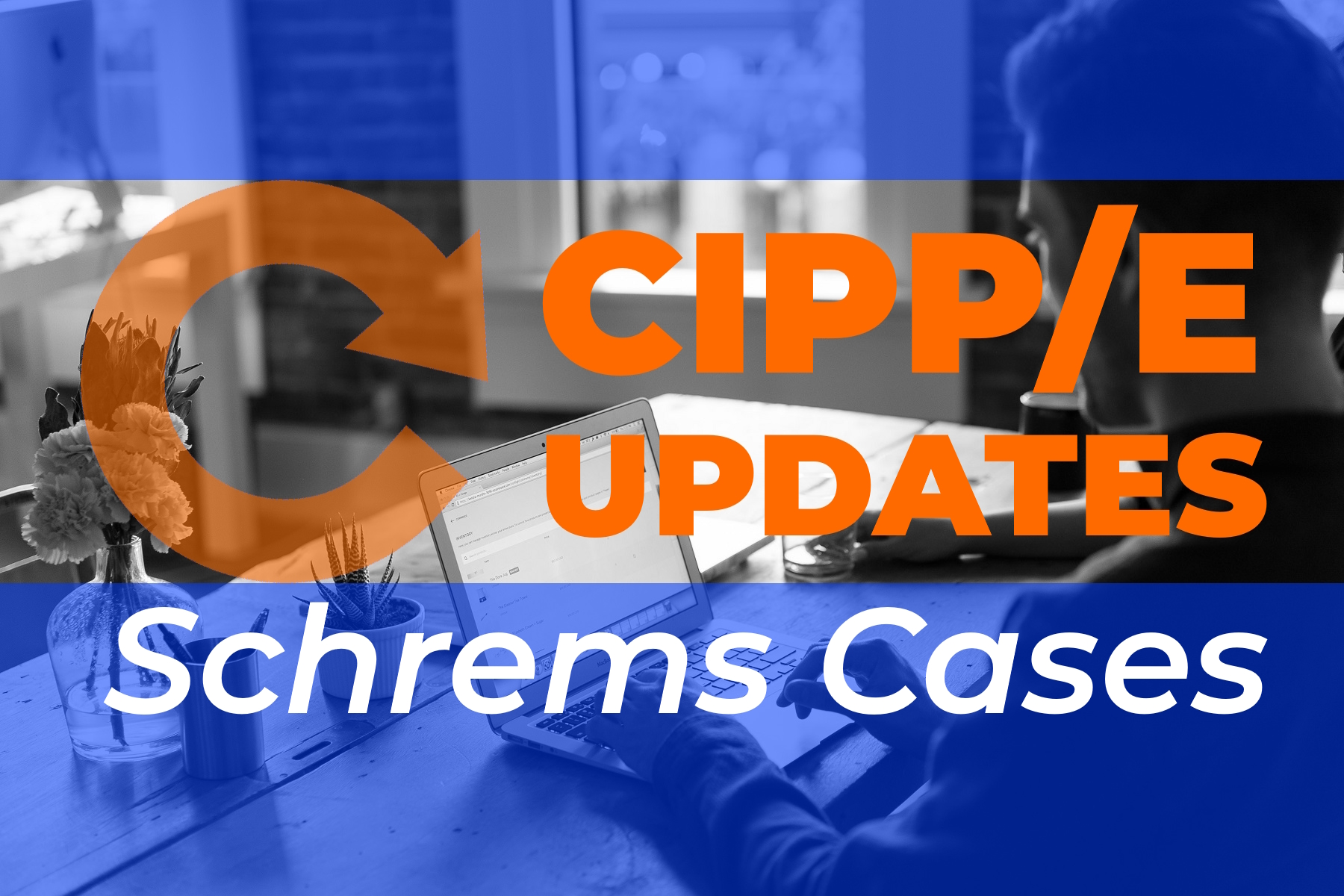The Schrems Cases and the Future of Data Privacy
Are you prepared for the updates in the CIPP/E curriculum? On October 2nd the CIPP/E exam will undergo significant updates, which means learning new and additional material. At 22Academy.com, we're here to help you navigate these changes with a series of informative blog articles that break down the updates. Additionally, for those facing the exam or a retake post-update, we're offering a comprehensive training course. Whether you've previously enrolled elsewhere or with us, our commitment to keeping you informed remains steadfast. We're updating our trial exams and training courses to ensure you have access to the latest content and exam requirements. Join us at 22Academy.com to prepare for the updated CIPP/E exam with confidence. The following is part of our comprehensive series of articles on the updates.
In the realm of data protection and privacy, the Schrems cases, spearheaded by Austrian privacy activist Max Schrems against Facebook and the US government, have left an indelible mark. These legal battles have fundamentally altered the dynamics of personal data transfers between the European Union (EU) and the United States, bearing significance for data privacy professionals.
Schrems I: The Demise of the Safe Harbor Framework (2015)
In a pivotal 2015 ruling, the Court of Justice of the European Union (CJEU) invalidated the EU-US Safe Harbor Framework. This framework had facilitated the transfer of data from the EU to the US, circumventing the need for full compliance with EU data protection laws. The CJEU's decision stemmed from concerns that the Safe Harbor Framework failed to adequately safeguard the privacy of EU citizens in the face of US government surveillance activities.
Schrems II: The Fall of the Privacy Shield (2020)
In a sequel that echoed its predecessor's impact, the CJEU, in 2020, struck down the Privacy Shield. Designed as a successor to the invalidated Safe Harbor Framework, the Privacy Shield promised heightened data protection for EU citizens. However, the CJEU ruled that it, too, lacked the necessary safeguards against US government surveillance.
Navigating the Post-Schrems Terrain
The aftermath of these rulings has ushered in a complex landscape for companies engaged in data transfers from the EU to the US. To facilitate such transfers, these companies must now explore alternative mechanisms. These mechanisms, including standard contractual clauses or binding corporate rules, entail distinct levels of data protection. The choice of mechanism necessitates a comprehensive understanding of the options available and their implications.
The Schrems Legacy: Data Privacy at the Forefront
The Schrems cases underscored the paramount importance of data privacy compliance. They underscored the substantial privacy risks posed by US government surveillance, emphasizing the need for rigorous safeguards and stringent adherence to EU data protection laws.
The EU-US Data Privacy Framework (DPF): A Potential Solution
In 2023, the European Commission introduced the EU-US Data Privacy Framework (DPF). Designed to address concerns raised by the CJEU, the DPF imposes stringent data protection principles on US organizations. It incorporates safeguards, including the US government's commitment to accessing data solely through a warrant based on probable cause, mandates for robust technical and organizational data protection measures by US companies, and provisions for EU citizens to access and challenge their personal data.
The Road Ahead: Ongoing Uncertainties
While the DPF represents a significant stride toward safeguarding EU citizens' data, questions persist regarding the US government's commitment to refrain from accessing data transferred under this framework. The data privacy landscape continues to evolve, necessitating vigilance and adaptability among data privacy professionals.
In this dynamic environment, data privacy professionals must carefully evaluate risks and compliance prerequisites. Exploring alternative mechanisms and collaborating with data protection experts can ensure adherence to EU data protection laws. The Schrems cases serve as a potent reminder that data privacy is a constantly shifting landscape, demanding continuous awareness and proactive measures.
Note: you will find more information about the Schrems cases and the recent developments regarding the EU-US Data Privacy Framework in the CIPP/E Update Course.
You can already pre-register for the CIPP/E Update Course. It will be live in the weekend of September 16! Feel free to reach out if you need more information: info@22academy.com



